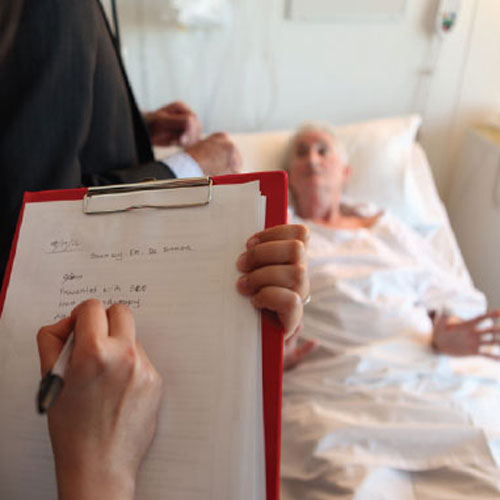The General Practice Unit is a long-standing academic family medicine clinic located in the Fairfield Hospital. Here, we integrate the medical education, research, health services development, and liaison with clinical care delivery. In 2016, the Clinic co-located with the Prairiewood Community Health Centre, on the Fairfield Hospital campus, and the Research Office moved into the Ingham Institute of Applied Medical Research building, in Liverpool.
We provide expert family medicine care to the local community and staff of Fairfield Hospital. This includes a broad range of primary care services including shared and “stepped up” care with local GPs for patients living with complex care needs, and occupational health services (e.g., fluid exposure injuries).
The Unit trains both clinical and academic GP registrars under the national Australian General Practice Training program. We have a strong focus on health education and promotion, and evidence-based medicine in the program. This has resulted in our registrars leading a health education program for students with special needs at Fairfield High School, numerous evidence-based health articles in the medical and lay press, and publication of registrar research projects relevant to the local community.
As part of the UNSW Sydney family (SWS Clinical School, School of Public Health and Community Medicine, and the Centre of Primary Health Care and Equity) we are deeply involved in all three phases of the UNSW Medicine program (teaching, assessment, curriculum design, medical education research), and the Unit is an UNSW research facility.
We work closely with the SWS Primary Health Network (SWSPHN) and Local Health District (LHD). We develop, implement, and evaluate innovative and culturally appropriate models of care at the primary-secondary care interface.
Our research and evaluation activities, with funding from agencies including the NHMRC and ARC, are focused on (i) quality primary care, and (ii) health informatics.
The Unit has an emphasis on cultural respect in all its activities. This has special salience in South Western Sydney, with its ethnically and culturally diverse population. This area and its communities has the highest proportion of Aboriginal people in the Sydney basin. We developed a cultural respect program and toolkit, Ways of Thinking and Ways of Doing (WoTWoD), and are evaluating it with a cluster randomised trial, funded by the NHMRC (2014-2017).
The Unit is especially interested in the systematic integration of care between the primary and acute health sectors. For instance, with funding from the Cancer Institute of NSW, we undertook an action research program to improve communication between SWSLHD Cancer Services and local general practice. This quality improvement work is now being extended to other clinical services.
With funding and support from UNSW Medicine and SWSLHD, the Unit established its major health informatics infrastructure – the electronic Practice Based Research Network (ePBRN). This project enables translational health services research, especially for the local area. Routinely collected data in the electronic health information systems of GP clinics, the Fairfield Hospital diabetes service, and admissions, are pseudonymised, extracted and linked in the ePBRN data repository in an ongoing basis. For instance, the ePBRN ‘big data’ approach helped develop predictive models for admission of patients with diabetes in the Fairfield neighbourhood, with funding from the HCF Research Foundation.
We are extensively involved in health, education, and research development, and provide professional service, expertise and leadership to numerous SWSPHN, SWSLHD, and UNSW Sydney committees. We further provide service to a range of other organisations including: NPS, RACGP, GP Synergy Ltd, Nepean Blue Mountains PHN, NSW Agency for Clinical Innovation, Mental Health Commission of NSW, NHMRC, and others.
Over 2014-6, we have published 44 peer-reviewed papers. As supporters of the concept of knowledge exchange, we have a further 27 publications in the medical and lay press promoting evidence-based health care during this period, along with numerous other media engagements including newspaper and radio.



